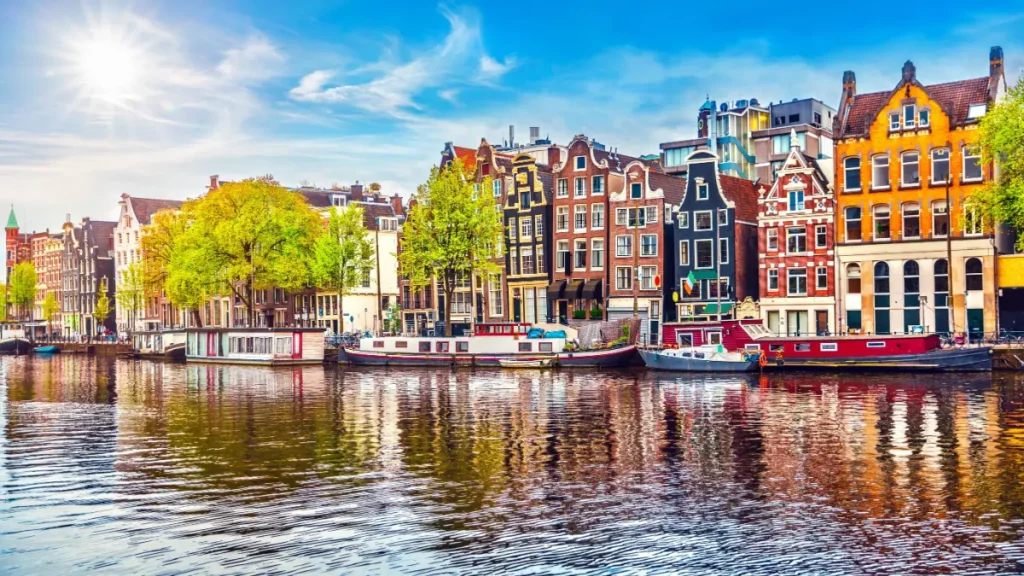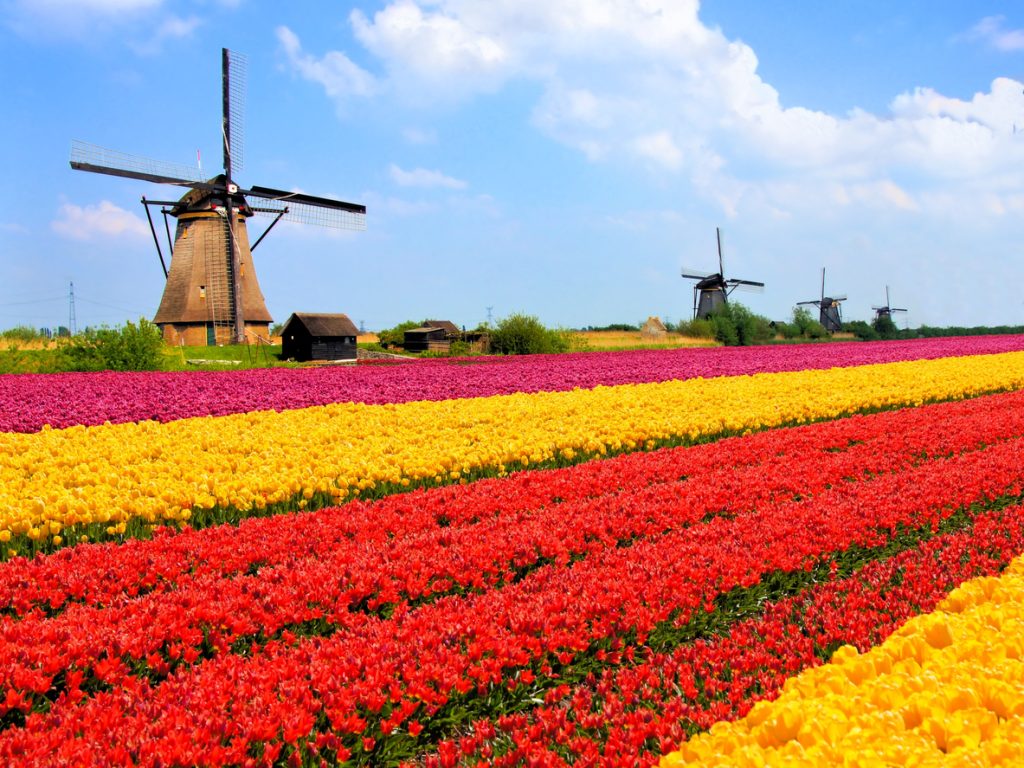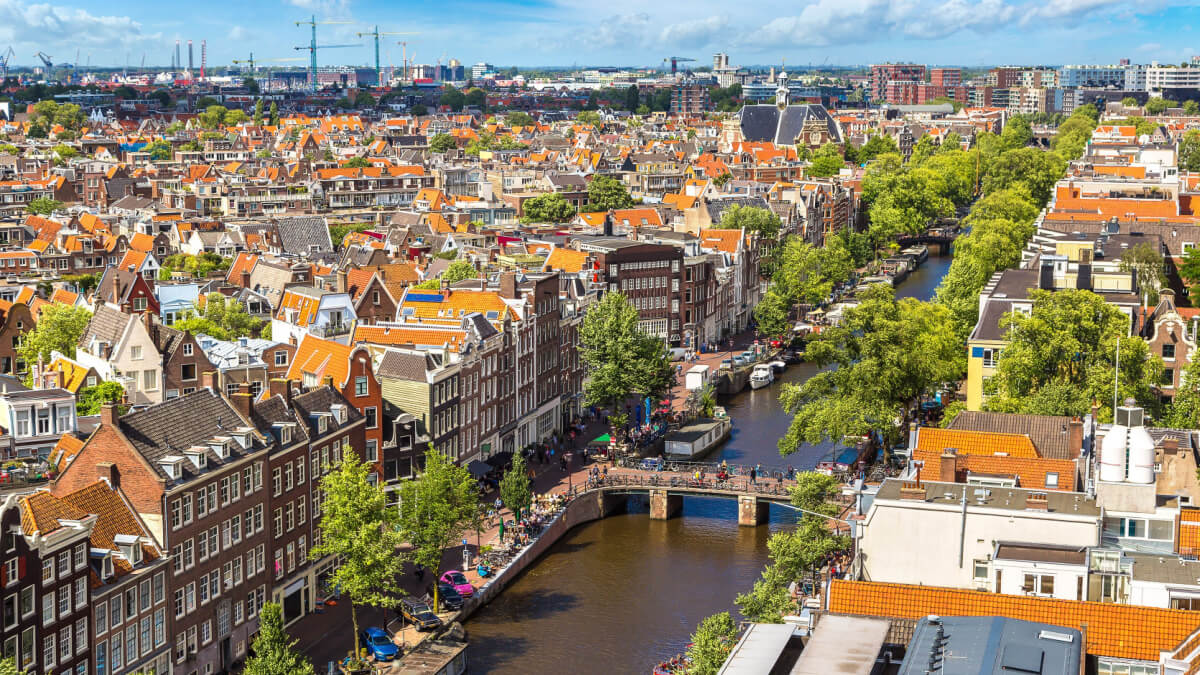The Netherlands, nestled in the northwest of Europe, is a country well-known for its tulip fields, windmills, wooden clogs, and scenic canals. Beyond these iconic symbols, the nation boasts a rich cultural heritage, a strong economy, and a high standard of living, which makes it an appealing destination for investors. The real estate market in the Netherlands presents diverse opportunities for both Dutch citizens and foreign investors. This comprehensive guide will walk you through the entire process of purchasing a property in the Netherlands, including legal requirements, step-by-step procedures, costs, and much more.
Introduction to Buying Property in the Netherlands
Investing in property abroad can be a significant step, and the Netherlands is an attractive option thanks to its robust economy, well-established property market, and high quality of life. Whether you are seeking a permanent residence, a vacation home, or an investment opportunity, the Dutch property market offers a wide array of options. In this guide, we will discuss every aspect you need to consider when purchasing a house in the Netherlands, from understanding the local market to navigating legal procedures.

Why Invest in Dutch Real Estate?
- Economic Stability: The Netherlands has one of the most stable economies in Europe, with a high GDP per capita and steady growth.
- Quality of Life: Dutch cities consistently rank high in global livability indexes due to factors like healthcare, safety, and environmental quality.
- Ease of Access for Foreign Investors: Unlike many other European countries, the Netherlands has a relatively open real estate market for foreigners, with few restrictions on property ownership.
The article will explore these benefits in detail, providing you with valuable insights into why buying property in the Netherlands could be a smart move for your portfolio.
Can Foreigners Buy Property in the Netherlands?
One of the most common questions asked by potential buyers is whether foreigners are allowed to purchase property in the Netherlands. The short answer is yes—foreign investors face no legal barriers to purchasing residential property. Unlike some other countries, there is no requirement for foreign buyers to have residency or citizenship. For instance, citizens from non-EU countries, including Turkey, can purchase properties in the Netherlands without any restrictions.
However, it’s crucial to understand that buying a property does not automatically entitle you to a residence permit. The Netherlands does not offer a “golden visa” program, meaning that purchasing a property is not enough to qualify for a visa. If you are planning on living in the Netherlands, you will need to follow standard residency application procedures.
Essential Documentation for Foreign Buyers
To buy property in the Netherlands, you’ll need a few key documents, including:
- Burger Service Nummer (BSN): This is a citizen service number that you must obtain, as it is required for all legal and financial transactions, including mortgage applications.
- Valid Passport or National ID: This is required for identification purposes.
- Proof of Income: Especially relevant if you plan to take out a mortgage.
The Step-by-Step Home Buying Process in the Netherlands
Purchasing a home in the Netherlands involves multiple stages, from initial research to closing the deal. Below, we provide a detailed breakdown of each step.
Step 1: Research and Make an Offer
The first step in buying a property in the Netherlands is thorough research. Potential buyers should explore properties through online listings, such as Funda.nl, which is one of the leading property websites in the country. Once you find a property you like, you need to make a formal offer. It is advisable to review property price trends on the official Dutch Land Registry (Kadaster) website to make sure your offer is competitive and reflective of current market conditions.
Step 2: Property Valuation and Inspection
After your offer is accepted, the next step is to get an appraisal or valuation of the property. A professional inspection is recommended to assess the condition of the house and identify any issues that may require repairs. The valuation will also be used by mortgage lenders to determine the property’s value.
- Tip: Hiring a certified appraiser can help you avoid surprises and ensure that your offer matches the real value of the property.
Step 3: Signing the Preliminary Contract
The preliminary purchase agreement, known as “voorlopige koopovereenkomst,” is then signed by both parties. This contract outlines the terms of the purchase, including contingencies. Dutch law allows a cooling-off period of 72 hours during which you can cancel the contract without any penalty.
Step 4: Pay the Deposit
To confirm your commitment, you will be required to pay a deposit, typically 10% of the purchase price. This deposit is held in escrow by the notary and serves as a guarantee that you intend to proceed with the purchase. If you withdraw from the sale without a valid reason, you may lose your deposit.
Step 5: Notarial Procedures
In the Netherlands, property transfers must be executed by a notary. The notary ensures that all documentation is correct and registers the property transfer with the Land Registry. This is the stage where you also finalize mortgage documents if applicable.
Step 6: Completion and Transfer of Ownership
On the agreed completion date, the notary will arrange for the transfer of the deed, and you will officially become the property owner. It is common practice to conduct a final walkthrough of the property on the day of completion.
Costs and Fees Associated with Buying Property
Buying a house in the Netherlands involves more than just the purchase price. It is essential to be aware of the various fees and taxes that apply, which can add a significant amount to your overall costs.
Overview of Purchase Costs
- Transfer Tax: 2% of the property value for residential properties.
- Notary Fees: Typically range between €1,000 and €2,000.
- Mortgage Fees: Includes an arrangement fee, usually 1-1.5% of the mortgage amount.
- Appraisal and Inspection Fees: Appraisal costs generally start from €500, while inspection fees can range from €200 to €400.
- Real Estate Agent Fees: If you use a buyer’s agent, you can expect to pay around 1-2% of the purchase price.
Ongoing Costs of Property Ownership
- Property Taxes: Annual property taxes vary by municipality.
- Homeowners Insurance: Typically mandatory for mortgage approval.
- Maintenance Costs: Depending on the type and age of the property, maintenance can become a significant cost.
Dutch Property Market Insights: Regional Price Differences
The Dutch property market varies widely depending on location. Popular cities such as Amsterdam, Rotterdam, and Utrecht are more expensive due to their high demand and attractive amenities.
| City | Average Price per m² (2024) |
|---|---|
| Amsterdam | €7,300 |
| Rotterdam | €3,850 |
| The Hague | €3,900 |
| Utrecht | €5,000 |
| Eindhoven | €3,350 |
These values are indicative and can change based on market conditions, proximity to city centers, and other factors such as access to public amenities.
Types of Housing in the Netherlands
The Netherlands offers a diverse range of property types to suit different needs and budgets:
- Terraced Houses (Rijtjeshuis): The most common type of housing, particularly suited for families. These homes often feature shared walls and a communal garden.
- Detached Houses (Vrijstaande Woning): These provide greater privacy and space but come at a higher cost.
- Semi-Detached Houses (Twee-onder-een-kap): Offer a compromise between detached and terraced houses.
- Apartments (Appartementen): Ideal for urban living, particularly in city centers where space is limited.
- Houseboats (Woonboten): Found primarily in Amsterdam, these floating homes provide a unique way of living close to the city.
Financing Options for Foreign Buyers
Mortgage availability in the Netherlands varies for foreigners, and most banks will require you to reside or work in the country to qualify for a loan. The key conditions to obtain a mortgage include having a BSN, proof of income, and in many cases, a down payment of at least 10-20% of the property value.
- Tip: Consider consulting a mortgage advisor who specializes in foreign clients to guide you through your options and ensure the process goes smoothly.
Living in the Netherlands: Quality of Life

The Netherlands is one of Europe’s most desirable countries to live in due to its combination of environmental consciousness, strong healthcare, and high quality of education.
Sustainable Living
The Dutch government places significant emphasis on sustainability. This is reflected in their energy-efficient housing, cycling culture, and focus on renewable energy. By purchasing a home in the Netherlands, you are investing in a country that is making strides towards a greener future.
Social and Cultural Life
Living in the Netherlands also means access to a diverse cultural landscape. Cities like Amsterdam and Rotterdam are bustling with events, museums, theaters, and international cuisine, making the country attractive for those who love rich social experiences.
Conclusion: Making the Move
Buying a house in the Netherlands offers not only a solid investment but also an opportunity to experience a high quality of life in a progressive European nation. From its diverse property types and regional price differences to favorable investment conditions for foreigners, the Dutch property market has something for everyone. Before making your move, it’s advisable to consult with real estate professionals, financial advisors, and legal experts to ensure a smooth purchasing experience.
Next Steps
If you’re considering purchasing a property in the Netherlands, the next steps would be:
- Engage a Real Estate Agent: They can help you navigate the market and understand local nuances.
- Consult a Mortgage Advisor: To explore financing options tailored to your status as a non-resident.
- Schedule Property Visits: Whether in person or virtual, visiting prospective homes is essential.
Meta Description: Learn how to buy a house in the Netherlands, covering legal procedures, costs, regional market insights, and more. A detailed guide for foreign buyers in Dutch real estate.

